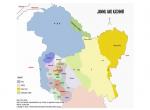We have decided to resume the so-called composite dialogue with Pakistan, without admitting as much. Why not be frank about the change in our position? Why resort to word play to obfuscate? If we are going to discuss counter-terrorism, peace and security, Kashmir, Siachen, Sir Creek, Wullar Barrage/Tulbul navigation project, people-to-people exchanges, trade, how does this agenda differ from that of the composite dialogue?
Why are we not able to adhere firmly to our position? The other side can, so why do we waver? Pakistan has been adamant that a renewed dialogue should discuss Kashmir as a priority issue and has batted for the composite dialogue format. It has steadily chipped away with success at our resolve to emphasise terrorism, progress on bringing to justice the perpetrators of Mumbai, etc, as a priority, before moving step-by-step to other issues, without being straitjacketed by the composite dialogue arrangement.
Our position that we first need to remove the trust deficit, deal with what is doable before moving on to more difficult issues, has been effectively jettisoned. We still mention sequencing and step-by-step progress, but we also say that all outstanding issues will be discussed, and we list them too, and that includes all the items on the agenda of the composite dialogue. There is an obvious incompatibility in the two positions. We also say that we are not agreeable to timelines for discussions on subjects like Kashmir, Siachen etc that Pakistan emphasises, yet we have agreed that discussions on all the listed issues will take place by July when the Pakistan foreign minister will be visiting India. In the coming four months or so we are ourselves visualising a lot of diplomatic activity. In this compressed timeframe is there much scope for ‘sequencing’? That would suppose that Pakistan will move forward concretely very quickly on trying those responsible for the Mumbai carnage and on the issue of terrorism, for us then to be ready to discuss Kashmir, etc, and complete the agenda ‘sequentially’ in four months. One assumes there was clarity of understanding between the two sides at Thimphu on this point, as otherwise the fiasco at Islamabad last year could be repeated.
This broadening of the bilateral dialogue on Pakistan’s terms would suggest that either the trust deficit has been reduced in the last few months or that we now judge that by yielding to Pakistan’s rigid position we can hope to achieve better results than by holding fast to our own. At least in the public domain there is no evidence that Pakistan is more pliable than before on issues of core interest to us. On the contrary, the signals from Pakistan, even on the eve of the recent Thimphu meeting, have been negative. The Pakistani spokesman attacked us aggressively on the Samjhauta Express issue, questioning our sincerity in unearthing the military links of the Hindu terrorist groups. Hafiz Saeed once again ranted against India on Kashmir, this time advocating nuclear war to wrest the province from us. Pakistani political leaders made predictable statements on the Kashmir Solidarity Day about the right of Kashmiris to self-determination, and their participation as a third party in India-Pakistan parleys on Kashmir. Pakistan believes it has enough diplomatic room to vitiate the atmosphere every time India-Pakistan talks begin, without any diplomatic cost to it as it believes India would swallow its provocations for lack of other options. The recent vituperations of its permanent representative in Geneva against us were also a reminder of Pakistan’s unchanged thinking toward us.
We have agreed at Thimphu that terrorism, as was the case in the past, will be discussed by the home secretaries, with the foreign secretaries discussing Kashmir and peace and security. After 26/11 such reversion to the previous format is difficult to justify. What this means is that terrorism — the priority issue for India — will be dealt with at the “concerned ministry” level, while the principals — the foreign secretaries — will discuss Pakistan’s priority issue of Kashmir. This arrangement also effectively dilutes the centrality of terrorism from the Kashmir issue, besides suggesting that more than terrorism cross LoC movement and trade and such CBMs require special attention, whereas terrorism should remain for us a fundamental political and foreign policy issue determinant for bilateral ties. Inevitably, at the home secretaries level, the terrorism issue will get reduced to transmission of information, legal procedures, document sharing, technical counter-terrorism matters etc, losing the political link with Kashmir, as that specific dimension will be outside the remit of these secretaries. One can only hope that the Joint Anti-Terrorism Mechanism will not get revived, to suit Pakistan’s strategy of projecting itself as a partner in fighting the shared threat of terrorism, rather than an official supporter of terrorism directed at India.
Pakistan has also used successfully the timetable of Pakistan foreign minister’s visit to India as a diplomatic weapon against us. With the confidence that India needs resumption of the dialogue more than Pakistan does, the minister has been playing hard to get, laying down conditions, demeaning us by convoking us to show meaningful and concrete progress in talks, as if we are the recalcitrants whereas Pakistan genuinely and sincerely wants to move forward. He has been getting away with his arrogant posture because we have been entreating him to come. Implicit in our appeals is the message that we are ready to move forward ‘meaningfully’, whatever that means. Why do we put ourselves in a position where we become equally if not more responsible than Pakistan to move the dialogue forward? Initially the minister (it won’t be the pompous Qureshi now) was to come in January or February this year; the visit then got shifted to April, and now it is slated for July. Pakistan has got its way. We have been given time until July to prove our sincerity to Pakistan, and the reward for us would be its foreign minister’s visit to India. The US believes that the visit of its president to a country is a form of political reward. We have, unfortunately, let Pakistan adopt this kind of a patronising posture toward us.
The timing of our initiative to resume the full-spectrum dialogue is also not promising. The public reaction in Pakistan to Salmaan Taseer’s assassination, with lawyers showering the murderer with rose petals, indicates a mood that gives less hope than before of serious action by the government on the Mumbai issue and jihadi terrorism. The current governmental crisis in Pakistan handicaps our peace parleys. President Asif Ali Zardari is more feeble than before, and General Ashfaq Kayani stronger. Just when the US is finding it increasingly problematic to deal with Pakistan, we are signalling that we can do business with it. We make Pakistan look more open and politically credible, more capable of delivery, by expressing our willingness to talk to it even about Afghanistan.
If we do not want to play hard ball with Pakistan, like Pakistan does with us, why do we play soft ball with it? Self-goals will not help us achieve the goal we chase of peace with Pakistan.
----------------------------------------
Published Date : 17 February, 2011









Post new comment